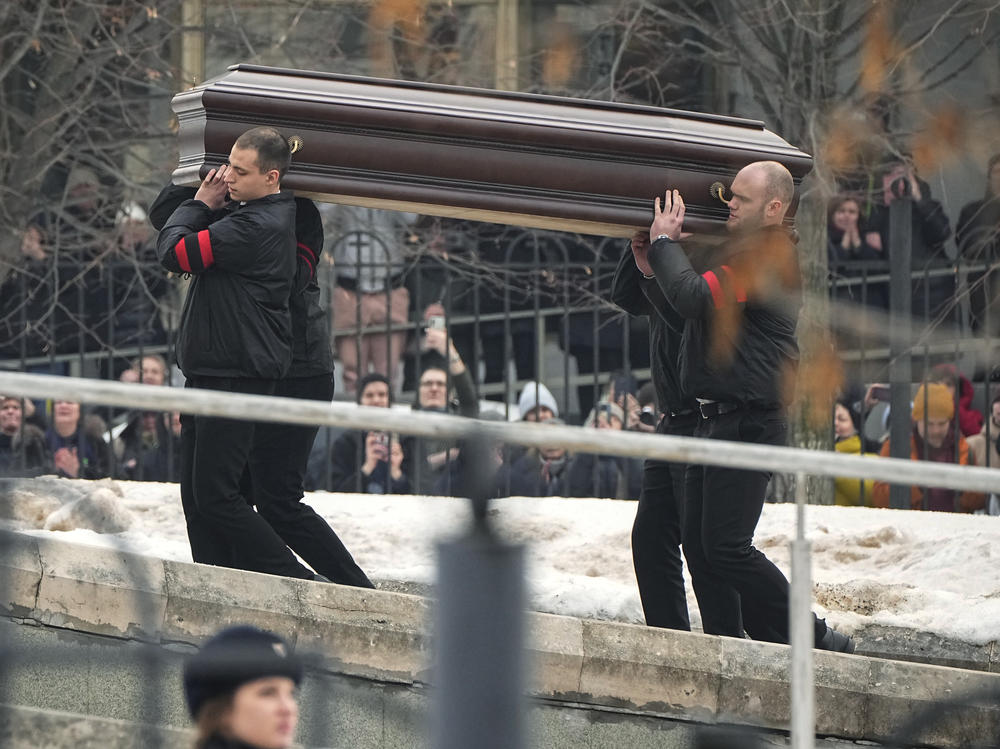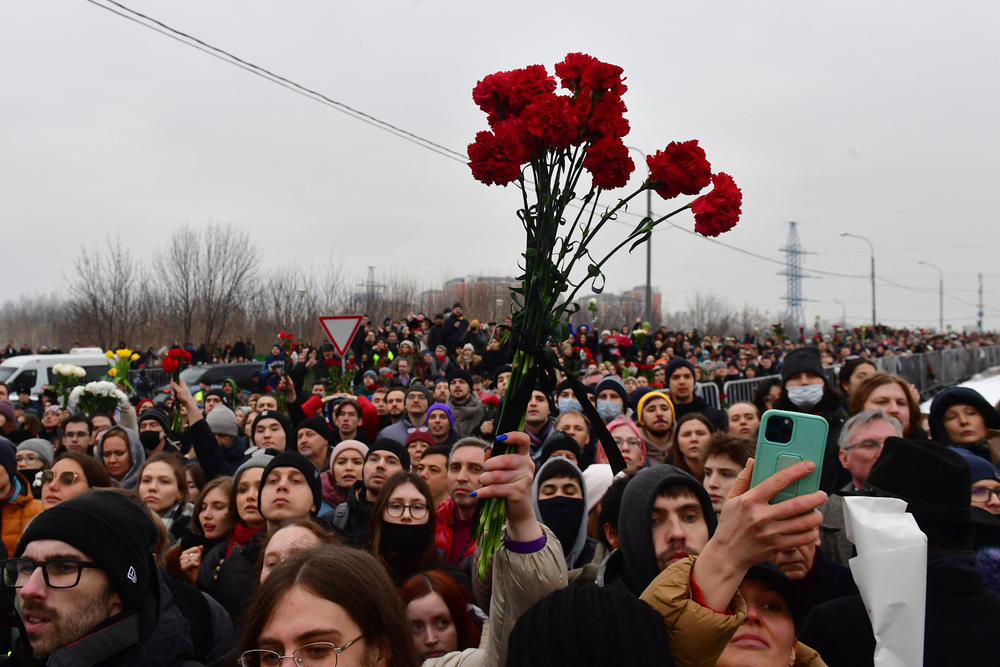Section Branding
Header Content
Supporters chant 'We are not afraid' as Russia's Navalny is laid to rest
Primary Content
BERLIN — Thousands of mourners attended the funeral of Russian opposition leader Alexei Navalny on Friday, despite being kept out of the church where only his parents and a handful of others could gather around the open casket, holding candles and flowers during a religious service.
His coffin was quickly closed and people were not allowed to walk past and pay their respects.
But outside the Church of the Icon of the Mother of God Soothe My Sorrows in the Maryino district of Moscow, people chanted "We won't forget you," "Forgive us," and "We are not afraid."
Navalny died two weeks ago at the age of 47 in an Arctic penal colony under unclear circumstances. He was serving a 30-year sentence on charges of fraud and extremism, accusations his supporters and human rights groups say were trumped up to remove a threat to President Vladimir Putin's hold on power.
After the service, giant crowds holding up bouquets of red carnations and roses braved the cold to walk 1.5 miles to the Borisovskoye Cemetery, where large wreaths surrounded the grave into which his casket was lowered to the theme of Terminator 2, which supporters said was his favorite movie.
Navalny, a one-time lawyer, spearheaded the most robust opposition movement against Putin since the Russian leader assumed office in late 1999. He orchestrated public demonstrations and released prominent investigations on purported corruption within the ruling class, including a carefully researched exposé of a billion-dollar mansion built for Putin himself, made in a YouTube video viewed over 130 million times.
In the days before the funeral, Navalny's supporters and wife expressed doubts it would even be allowed to take place.
When Navalny's mother, Lyudmila Navalnaya, identified his body in the Arctic city of Salekhard, she said in a video statement posted to YouTube on Feb. 22 that authorities "are blackmailing me, they are setting conditions where, when and how my son should be buried," and that they wanted a secret burial.
She refused.
Then, as preparations for Friday's funeral began, funeral homes and hearse drivers allegedly received threats.
"Unknown people are calling up people and threatening them not to take Alexei's body anywhere," the spokeswoman for Navalny's team, Kira Yarmysh, said Thursday on social media.
The mourners were of all ages and walks of life, and top foreign diplomats came as well, among them the ambassadors to Russia of the United States, France and Germany.
Navalny's widow, Yulia Navalnaya, did not attend for fear of immediate arrest. That was the fate of Navalny himself when he returned to Moscow in 2021, after being treated for weeks in Berlin for poisoning with the deadly Novichok nerve agent, in an apparent assassination attempt an investigation revealed likely involved members of the federal security service in Russia.
But Yulia Navalnaya paid tribute to her late husband on social media.
"I don't know how to live without you, but I will try my best to make you up there happy for me and proud of me," she wrote, thanking him for "love, for always supporting me, for making me laugh even from prison, for always thinking about me."
The Kremlin has denied any interest in the funeral or in trying to prevent it from happening.
On the day of the funeral, Kremlin spokesman Dmitry Peskov said he had "nothing to say" to Navalny's family, and that accusations by his widow, the European Parliament and some Western leaders that the opposition leader was killed were "vulgar."


